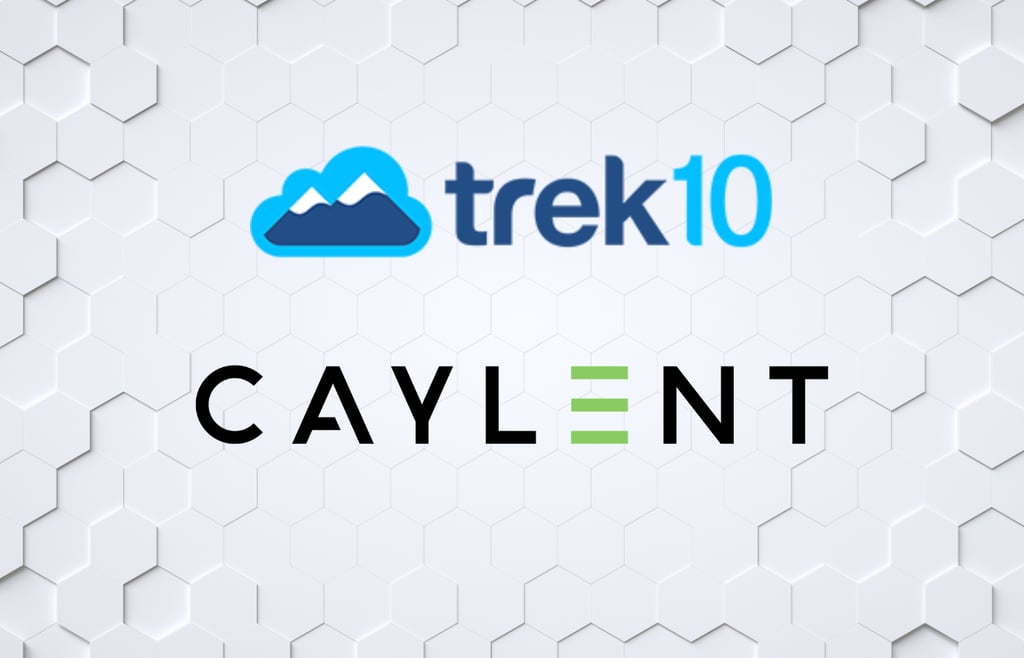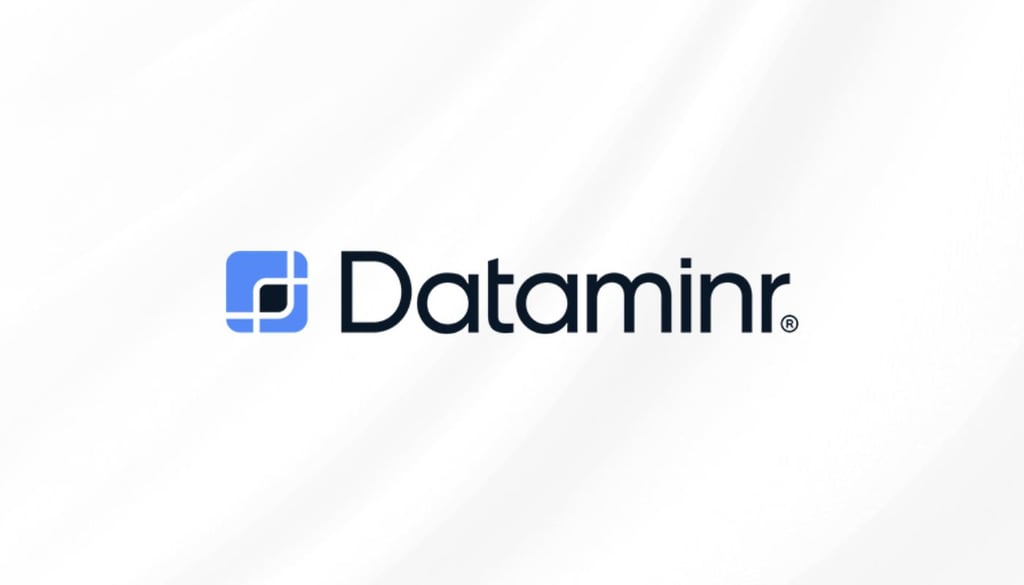Recently, Dell Technologies announced the introduction of innovations to assist customers in accelerating their data center modernization and embracing the AI revolution.
As IT teams move towards disaggregated infrastructure that abstracts compute, storage, and networking into shared resource pools to deliver improved scalability, efficiency, and adaptability, these new innovations are meant to help customers rethink their IT infrastructure approaches to better meet the needs of both traditional and modern workloads.
“Modern applications require a new breed of infrastructure that will help customers keep pace with ever-changing data center demands,” said Arthur Lewis, president of the Infrastructure Solutions Group at Dell Technologies. “From storage to servers to networking to data protection, only Dell Technologies provides an end-to-end disaggregated infrastructure portfolio that helps customers reduce complexity, increase IT agility, and accelerate data center modernization.”
Dell’s new innovations include the PowerEdge, PowerStore, ObjectScale, PowerScale, and PowerProtect solution lines.
Dell PowerEdge
The innovations Dell is introducing to the PowerEdge servers are designed to provide advanced energy efficiency and scalability.
Among the key features for the innovations include:
- Improved workload consolidation: The new innovations allow for the consolidation of legacy platforms, freeing up power and up to 80 percent of space per 42U rack with the Dell PowerEdge R770– saving up to half of energy costs and greenhouse gas emissions while supporting up to 50 percent more cores per processor and 67 percent increased performance. This will reduce data center footprints to help achieve sustainability goals and lower the overall total cost of ownership without sacrificing performance.
- Delivery of improved power with efficiency: The Dell PowerEdge R570 achieves “record-breaking” Intel performance per watt to help enterprises save on costs while maintaining high-performance workloads.
- Future-ready designs: The Data Center-Modular Hardware System (DC-MHS) architecture offers simplified and future-proof operations as part of the Open Compute Project (OCP). DC-MHS standardizes server design, facilitating easier integration into existing infrastructure and enhancing customer choice.
- Streamlined management: PowerEdge servers will deliver streamlined management and improved protection through Dell OpenManage enhancements and Integrated Dell Remote Access Controller (IDRAC 10) updates, including real-time monitoring. Customers can also see a 33X reduction in write latency when paired with PERC13 PCle Gen 5 HW Raid controller.
“The PowerEdge R470 and the 570 are our single-socket servers and then the 670 and 770 are dual-socket servers. All of these are updated and refreshed now for the latest generation of the Intel Xeon 6 P-cores, as well as E-cores,” said Varun Chhabra, Senior Vice President, ISG Product Marketing. “These systems offer 2.5 times more power and more cores compared to their predecessors, enabling computational power for demanding applications.”
Dell PowerStore
This software boosts performance and security while also simplifying data management. Its intelligent software design provides an automated, programmable platform with advanced data reduction and independently scalable storage services suited to modern disaggregated architectures.
The latest innovations for the Dell PowerStore include:
- AI-powered analytics: Users can lower costs and remove manual effort with Smart Support alerts and remediation, performance headroom analytics, and carbon footprint forecasting using Dell AIOps (formerly CloudIQ) software.
- Enhanced zero-trust security: PowerStore provides controlled access and boosts availability with Department of Defense (DoD)-compliant smart card authentication, automated certificate renewal, and enhanced Storage Direct Protection integrations that “deliver up to four times backup restores” and support the latest Dell PowerProtect systems.
- Advanced file system support: System performance is improved through advanced file management capabilities, strong data protection with secure file snapshots, capacity insights for smarter storage planning, and streamlined migration from Dell Unity systems.
“We’re leveraging AI and our analytics to help our customers see better business outcomes at lower cost and a great example of that is what we call our Smart Support capability,” said Drew Schulke, Vice President, Product Management, Primary Storage. “Smart Support leverages real-time telemetry from thousands of Powerstores that are deployed around the world, and from this telemetry we can proactively predict potential hardware and software issues before they occur. We can even open support tickets and arrange for parts shipments automatically for our customers, so they don’t have to worry about that kind of moving beyond the AI more into the security and the resiliency space.”
Dell ObjectScale
The next generation of Dell ObjectScale was also unveiled to deliver scalability, performance, and efficiency for AI workloads. The enterprise-grade architecture of ObjectScale is being modernized to introduce new appliance options that provide the following features:
- Improved density and scale: Dell ObjectScale X560 HDD-based systems accelerate key workloads like media ingest, backups and AI model training with 83% faster read throughput.
- Faster object for AI: ObjectScale XF960 enables faster innovation with AI workload performance to deliver up to two times greater throughput per node than the next closest competitor and eight times greater density than previous generation all-flash systems.
- Enhanced efficiency and resiliency: Offers the ability to operate and secure AI data lakes with multi-site federation, copy-to-cloud, geo-replication, global namespace, and data governance capabilities that is backed by a new hybrid cloud solutions powered by ObjectScale, developed in collaboration with Wasabi.
“The new Dell ObjectScale platform is really helping these operations deliver for the incredible amounts of data that they’re now working with– storing and creating at scale,” said Martin Glynn, Senior Director, Product Manager, Unstructured Data. “Part of the way that this platform is optimized for that is with a huge leap forward in density– up to eight times greater storage density. The platform is also able to help both types of customers, those new data lakes or existing data lakes.”
Dell PowerScale
Improvements to the Dell PowerScale platform enhance its performance per terabyte, optimize data center floor space utilization, and balance affordability with performance to optimize total cost of ownership (TCO).
Among the features of the new PowerScale innovations include:
- High-density all-flash storage: 122TB SSDs maximize GPU utilization with up to six PBs of high-speed data access in a single 2U node configuration and deliver leading performance density to meet massive AI throughput requirements.
- Hybrid and archive nodes: PowerScale A & H series nodes (H710, H7100, A310, A3100) provide reduced latency and enhanced performance with an updated compute module for HDD-based platforms. Customers of this solution can future-proof their data centers and retain AI training data longer with a flexible, TCO-optimized portfolio mix that improves accuracy and efficiency.
“We also have new hybrid and archive nodes which offer customers the flexibility of both cost and performance,” said Glynn. “These new node types can be combined with existing clusters to provide our customers seamless compatibility across their environment, whether they need high-performance flash or cost-optimized hybrid and archive nodes. And with recent advancements we’ve made in both software and hardware architecture, the platform can now deliver up to 220 percent faster data ingestion and up to 99 percent faster data retrieval.”
Dell PowerProtect
This offering enhances cyber resilience by improving performance and efficiency. It includes data protection updates that help customers strengthen their cyber resilience while managing costs through better performance, security, and efficiency.
Among the features of these updates include:
- Scalable and efficient data protection for all: Dell PowerProtect DD6410, with a capacity of 12TB to 256TB, making it ideal for commercial, small business, and remote site environments. The offering delivers up to 91 percent faster restores and scalability for traditional and modern workloads plus efficient operations with industry-leading up to 65 times deduplication.
- All-flash performance and efficiency: Dell PowerProtect All-Flash Ready Node, delivers more secure and efficient data protection with a 220TB capacity system that offers over 61 percent faster restore speeds, uses up to 36 percent less power, and features a five times smaller footprint.
- Strengthened enterprise resiliency: The updates will help customers quickly identify security risks with Anomaly Detection, manage Microsoft Hyper-V and Red Hat OpenShift Virtualization virtual machine backups, and easily archive data to Dell ObjectScale for long-term retention.
“Now, we have within the PowerProtect data manager arguably one of the most sophisticated approaches to backing up VMware, but our end users have made it very clear that they’re looking for alternatives to VMware in light recent events, so we’ve added the capability to back up Hyper V, virtual machines, as well as open shift virtualization,” said David Noy, Vice President, Product Management, Data Protection. “We have a number of other virtualization technologies that are in the works for the second half of the year because customers deploy these systems, oftentimes in multiple locations, across multiple data centers, often globally.”
Channel implications
The channel ecosystem will greatly benefit from the new innovations in these Dell solutions. They provide value-added services for infrastructure strategy, deployment, and support for organizations within the channel.
Dell’s storage products, such as PowerProtect, provide high-performance, low-impact backups for VMware environments, ensuring optimal core utilization and improved TCO.
“These solutions are all available to resell by channel partners, as with other Dell innovations,” said Chhabra. “Even more importantly, there is a huge amount of capability and there’s a huge amount of opportunity for partners to be able to add value-added services on top of this.”
Dell’s channel ecosystem is vital, Chhabra states, in assisting customers with value-added services that enable organizations to reconsider their infrastructure strategy or evaluate how to execute a deployment on an enterprise scale.
Dell furthered its focus on assisting partners not long ago by significantly updating their 2025 Partner Program. Discover which added incentives are available for partners gaining competencies in AI, storage, and sustainability technologies.











 AI 50 ListChannel Insider's editorial team spotlights the top AI leaders from MSPs, vendors, and channel businesses delivering measurable outcomes.Link to CML 100 Honorees
AI 50 ListChannel Insider's editorial team spotlights the top AI leaders from MSPs, vendors, and channel businesses delivering measurable outcomes.Link to CML 100 Honorees CML 100 HonoreesCheck out our CML 100 List to discover the top channel marketing individuals who are transforming channel marketing for their organizations.Link to HSP 250 List
CML 100 HonoreesCheck out our CML 100 List to discover the top channel marketing individuals who are transforming channel marketing for their organizations.Link to HSP 250 List HSP 250 ListView our HSP250 list to see the top Hybrid Solution Providers that have proactively embraced the future of tech.Link to The 2024 Channel Insider VIP List
HSP 250 ListView our HSP250 list to see the top Hybrid Solution Providers that have proactively embraced the future of tech.Link to The 2024 Channel Insider VIP List The 2024 Channel Insider VIP ListChannel Insider sought nominations from IT vendors, solution providers, and partners to highlight impactful collaborations. Check out our top choices here.
The 2024 Channel Insider VIP ListChannel Insider sought nominations from IT vendors, solution providers, and partners to highlight impactful collaborations. Check out our top choices here. Video: Introducing The Superhuman Alliance
Video: Introducing The Superhuman Alliance Video: How MSPs Can Turn Compliance Into Profit According to Choice Cyber Solutions COO
Video: How MSPs Can Turn Compliance Into Profit According to Choice Cyber Solutions COO Video: Q3 2025 Channel Recap: Broadcom Shake-Up, Scale Computing Acquisition, AI Services & Quantum Trends
Video: Q3 2025 Channel Recap: Broadcom Shake-Up, Scale Computing Acquisition, AI Services & Quantum Trends Video: Unlock Revenue Growth with the Eaton Power Advantage Partner Program
Video: Unlock Revenue Growth with the Eaton Power Advantage Partner Program Video: AI Video Discovery: How Moments Lab Transforms Media with its New Discovery Agent
Video: AI Video Discovery: How Moments Lab Transforms Media with its New Discovery Agent Video: From Law Firm IT to Leading an MSP: Atul Bhagat on Community, Consolidation & Growing BASE Solutions
Video: From Law Firm IT to Leading an MSP: Atul Bhagat on Community, Consolidation & Growing BASE Solutions


